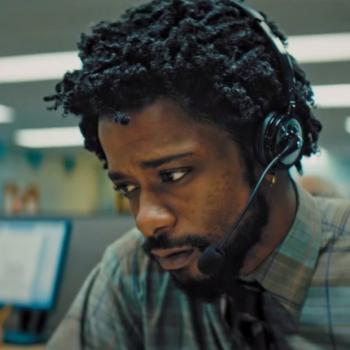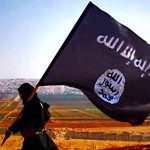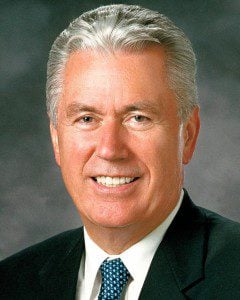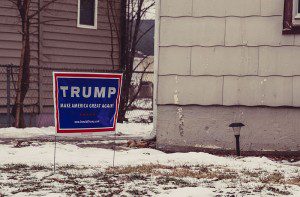
In a meeting of the Southern Christian Leadership Conference for the 1963 civil rights protests in Alabama that landed Martin Luther King, Jr. in a Birmingham jail, King warned his fellows:
I want to make a point that I think everyone here should consider very carefully and decide if he wants to be with this campaign. . . . I have to tell you that in my judgment, some of the people sitting here today will not come back alive from this campaign. And I want you to think about it.
Deadly violence had been frighteningly common in what was sometimes called “Bombingham” in those years, which were marked by numerous unsolved bombings of black homes. Upper-class families were not spared the destruction, leaving all black people in the city fearful.
Of course, King denounced this violent racism repeatedly in public addresses and private conversations with all types of political and religious leaders. And, more importantly, he led protests against it. But King’s energy was not only directed towards changing majority sentiment. His efforts to end racist politics and white indifference also included teaching people how to take a beating, how to go to jail, how to march into potentially fatal situations. That is, King and his movement taught people how to live courageously in a state of terror.
Reverend King found inspiration in the resilience of early Christians who suffered persecution at the hands of the Roman Empire and biblical stories like that of Shadrach, Meshach, and Abednego. The Christian commitment to non-violence represented in 1 Corinthians was reiterated in the protest trainings of King’s movement. “When we are verbally abused,” Paul wrote to the earliest Christians in Corinth, “we respond with a blessing, when persecuted, we endure, when people lie about us, we answer in a friendly manner” (4:12-13). This ethic had traveled far and wide in the world, and it came to King not only through inheritance of the text of the Bible, but from the inspirational success of the Indian independence movement led by Mohandis Gandhi, a Hindu reformer who also had been deeply influenced by Christian texts, especially the Russian novelist Leo Tolstoy’s argument for Christ-inspired non-violent resistance, The Kingdom of God Is Within You.[1]
King himself lived with the fear of assassination. “I have seen the promise land, [but] I might not get there with you,” he told a riveted audience the night before he was murdered (see the video above). But like Gandhi, he refused to allow these fears to slow his efforts or significantly alter his daily affairs. Intensely aware of the danger to his life and the lives of others, he marched with a peaceful power in Birmingham. That power, however, was not superhuman. In his jail cell that night, he worried about the lack of bail funds for jailed protesters and the ultimate success of his movement. They were, he would write later, “the longest, most frustrating and bewildering hours I have lived.” He would eventually receive word that bail funds had arrived, and that support for the movement was growing.
But he was still left with the frustration caused by some of Birmingham’s white Christian leadership. Even some of the most liberal among them had condemned the protests as “unwise and untimely.” They accused King of being an “outsider” who had inappropriately entered a fight in their territory, where, they said, negotiations with government were best suited for the social transformation black citizens deserved. One of King’s biographers observes that this response was almost certainly disingenuous in light of the facts: past negotiators had been quite undependable and almost all white churches in the city excluded blacks from their worship.
This disingenuousness came from an ignorant cowardice that clearly wore on King during those long nights in Birmingham. In the famous letter to these white Christian leaders, King gave his frustration a passionate eloquence that every American ear deserves to hear. The letter is the bold cry of a mind on fire and a brave but bleeding heart. It demonstrates King’s engagement with ancient history as well as the geopolitics of his day, but it also lays bare his deeply disappointed soul. “I guess it is easy for those who have never felt the stinging darts of segregation to say ‘wait,'” he tells his Christian brothers who had “remained silent behind the anesthetizing security of stained-glass windows.” Then he paints a picture of some of those “darts of segregation” that remind us that King fought against much more than the separation of drinking fountains according to race:
. . . when you have seen vicious mobs lynch your mothers and fathers at will and drown your sisters and brothers at whim; when you have seen hate-filled policemen curse, kick, brutalize, and even kill your black brothers and sisters with impunity . . . .
Earlier on in the letter, King explains that his movement did not view these horrors as an excuse for aggressive tactics that would lead to vindictive violence. No, he and his fellow organizers had been conscientious in their deliberations regarding the time, place, and manner of the protest, rescheduling and revising as current events (mainly, elections) demanded. And they were serious about their commitment to non-violence. He describes the profound preparations for a protest that required its participants to “present [their] very bodies as a means of laying [their] case before the conscience of the local and national community.” King writes: “We . . . repeatedly asked ourselves the questions, ‘Are you able to accept blows without retaliating?’ and ‘Are you able to endure the ordeals of jail?'”
It would take tremendous courage to “create such a crisis and establish such creative tension that a community that has consistently refused to negotiate is forced to confront the issue.” It would take tremendous restraint to “dramatize the issue so that it can no longer be ignored.” As there is in any Broadway production, there was a possibility of unexpected trouble, risks much worse than the forgetting of a few lines. Nevertheless, power had to be fought with power.
To the argument that protests should wait until negotiations with the newly elected moderate government were attempted, King appealed to history. “My friends,” he declared soberly, “History is the long and tragic story of the fact that privileged groups seldom give up their privileges voluntarily. Individuals may see the moral light and voluntarily give up their unjust posture; but, as Reinhold Niebuhr has reminded us, groups are more immoral than individuals.”
The reference here is to Niebuhr’s book Moral Man and Immoral Society. Neibuhr was one of the finest Christian theologians of the day, and King read him as a divinity school student. King was initially skeptical of Niebuhr’s views, which he found to be insufficiently optimistic. But Niebuhr’s tragic realism grew on King, and, unsurprisingly, he found it highly credible in a Birmingham jail cell. It offered the kind of clear-eyed Christian thinking, informed by large swaths of world history and a contemporary case study in Gandhi’s independence movement, that King’s movement required. And, like King’s letter, it was largely addressed to Christian leaders and thinkers who were much too sanguine about the possibility of social transformation via conversation about lofty ideals, the kind that goes on in Sunday School and in the secular classroom.
Niebuhr argued that these leaders failed to “recognize those elements in man’s collective behavior which belong to the order of nature and can never be brought completely under the dominion of reason or conscience.” They supported progressive social transformation without recognizing the non-rational forces inherent in the struggle for it. Neibuhr writes:
Contending factions in a social struggle require morale; and morale is created by the right dogmas, symbols and emotionally potent oversimplifications. . . . They will have to believe rather more firmly in the justice and in the probable triumph of their cause, than any impartial science would give them the right to believe, if they are to have enough energy to contest the power of the strong.
For Niebuhr, then, the fundamental question facing progressives was how to make ethical these powers beyond reason.
Moral Man and Immoral Society undoubtedly envisions conditions like those in Birmingham just before King’s protest. Acknowledging that those who possess irresponsible power so rarely sacrifice it for the collective good, Niebuhr affirms the tragic necessity of destroying that power with more power, which “will always run the peril of introducing new forms of injustice in place of those abolished.” He stresses this point repeatedly. Non-violent resistance is not marked by guarantees of peace and perfect justice. It carries with it the possibility of creating new injustices or causing unintended suffering.[2] But despite these unavoidable risks, Niebuhr insists that non-violent means are the best we have for effecting large-scale social transformation because they make use of the non-rational moral forces required for group action while attempting to keep the most dangerous elements of these forces in check.
Effectively implementing the kind of non-violent resistance Niebuhr contemplates demands great respect for the lives of enemies, a tragic sensibility, and phenomenal courage. Consequently, Niebuhr argues for the great relevance of religion in progressive social causes. “There is no problem of political life,” he writes, “to which religious imagination can make a larger contribution than this problem of developing non-violent resistance.” As the “citadel of hope . . . built on the edge of despair,” religion can, he argues, provide the reverence for life, the restraint of self, and the impossible hope that are the indispensable ingredients of successful non-violent social movements.
A certain group of Mormons gathered today in Oregon would benefit from taking seriously King’s powerful example of non-violence, but Mormonism as a whole has come a long way as far as King is concerned. Indeed, it has come far enough that most Mormons are largely ignorant of the tension that existed between Mormonism and the Civil Rights Movement.
The April 1968 General Conference was held just days after King was assassinated, and Hugh B. Brown, a counselor to President David O. McKay, offered a brief eulogy while conducting one of the sessions.[3] In the prior conference (October 1967), however, Elder Ezra Taft Benson declared, “There is no doubt that the so-called civil rights movement as it exists today is used as a Communist program for revolution.” King did, in fact, have reservations about capitalism, but his movement was no mere phony front to the machinations of godless communists.[4] The threat of communism captivated Elder Benson much more than America’s sins against its black citizens did, and he prophesied that “[n]ot one in a thousand Americans—black or white—really understands the full implications of today’s civil rights agitation.”
But rather than becoming the site of a violent communist assault on American government, the Civil Rights Movement became a force that moved the United States to be more “true to what [it] said on paper.” And in the light the movement spread, it helped Mormonism live up to some of its founding ideals as well. Ten years after King’s death, the vast majority of Mormons eagerly welcomed the end of the LDS Church’s racist policies that had kept black members from receiving priesthood or entering Mormon temples. If Joseph Smith is to be consulted on such matters, however, God had “not changed his mind about black people.” Under his leadership, black members had been ordained to the priesthood, but, shamefully, the church failed to continue this practice after his death.
In an address to church educators just a few weeks after the policy change, Elder Bruce R. McConkie acknowledged the error: “Forget everything that I have said, or what President Brigham Young or President George Q. Cannon or whomsoever has said in days past that is contrary to the present revelation. We spoke with a limited understanding and without the light and knowledge that now has come into the world.” A divine light seemed to burst into Mormonism on June 8, 1978, but it was not a new light. Some of it had illuminated the mind of Joseph Smith, but Mormonism, as it grew, needed the powerful light King shed on the sins of American racism to regain some of the vision God gave Joseph.
Like Joseph, King made his own mistakes, but Mormons are infinitely better for our increasing capacity to recognize the light God gave him to spread. As I heard James Taylor sing with the Mormon Tabernacle Choir in 2013, King (and the movement he led) “shed a little light” on what we already had but failed to see, and gave us even more.
[1] King said he “went to Gandhi through Jesus” (see p. 75 of David Garrow’s biography, Bearing the Cross), but it might be fair to say that Gandhi came to satyagraha, at least in part, through Christianity (see p. 36 of Joseph Lelyveld’s biography of Gandhi, Great Soul).
[2] Gandhi acknowledged, for example, how the boycotts of British goods he organized caused great anguish for British families unconnected to the evils of colonialism.
[3] “At this time,” Brown said, “we express deep sorrow and shock at the news of the passing of a man (Dr. Martin Luther King) who had dedicated his life to what he believed to be the welfare of his people. It is a shocking thing that in this age such a thing could happen. We pray God’s blessings upon his family, his friends, and those associated with him.”
[4] King’s sympathies were with “democratic socialism,” not communism, though he did not voice these views loudly (see p. 591-92 of Bearing the Cross).
Stay in touch! Like Peculiar People on Facebook:












